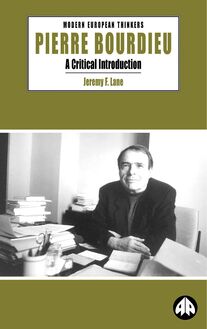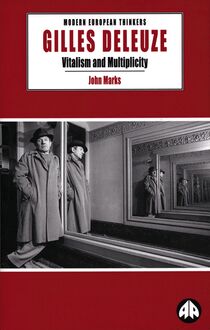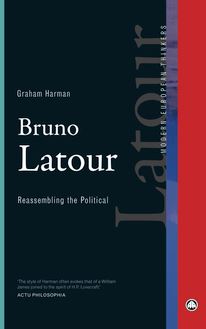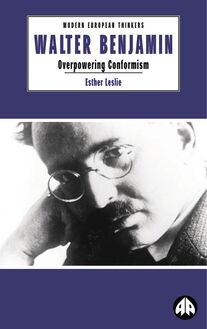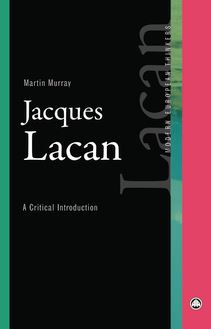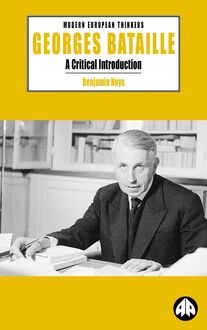-
 Univers
Univers
-
 Ebooks
Ebooks
-
 Livres audio
Livres audio
-
 Presse
Presse
-
 Podcasts
Podcasts
-
 BD
BD
-
 Documents
Documents
-
- Cours
- Révisions
- Ressources pédagogiques
- Sciences de l’éducation
- Manuels scolaires
- Langues
- Travaux de classe
- Annales de BEP
- Etudes supérieures
- Maternelle et primaire
- Fiches de lecture
- Orientation scolaire
- Méthodologie
- Corrigés de devoir
- Annales d’examens et concours
- Annales du bac
- Annales du brevet
- Rapports de stage
La lecture à portée de main
Vous pourrez modifier la taille du texte de cet ouvrage
Découvre YouScribe en t'inscrivant gratuitement
Je m'inscrisDécouvre YouScribe en t'inscrivant gratuitement
Je m'inscrisEn savoir plus
Vous pourrez modifier la taille du texte de cet ouvrage
En savoir plus

Description
'This is not simply the best critical introduction to Zizek – in a much more radical sense, this is the only critical introduction to Zizek. Parker's study is much more than an important contribution to the ongoing debate: it redefines its very terms.' Yannis Stavrakakis, author of 'Lacan and the Political'
'A sharp, clear and radical analysis.' Christian Ingo Lenz Dunker, Professor of Psychoanalytic Theory and Lacanian Psychoanalyst, Sao Paulo, Brazil.
Since the publication of his first book in English in 1989, Slavoj Zizek has quickly become one of the most widely read and contentious intellectuals alive today. With dazzling wit and tremendous creativity he has produced innovative and challenging explorations of Lacan, Hegel and Marx, and used his insights to exhilarating effect in analyses of popular culture.
While Zizek is always engaging, he is also elusive and even contradictory. It can be very hard to finally determine where he stands on a particular issue. Is Zizek Marxist or Post-Marxist? How seriously should we take his recent turn to Christianity?
Slavoj Zizek: A Critical Introduction shows the reader a clear path through the twists and turns of Zizek's writings. Ian Parker takes Zizek's treatment of Hegel, Lacan and Marx in turn and outlines and assesses Zizek's interpretation and extension of these thinkers' theories. While Parker is never hastily dismissive of Zizek's innovations, he remains critical throughout, aware that the energy of Zizek's writing can be bewitching and beguiling as well as engaging and profound.
Acknowledgements
Abbreviations
Introduction: something retroactive and some anticipation
Zizek’s sublime objects
Mapping this book
Some indivisible reminders
1. Yugoslavia – to Slovenia
The perfection of the state
Brotherhood and unity
The Slovene springs
2. Enlightenment – with Hegel
The thing with Hegel
Revolutionary fracture
Redemptive closure
3. Psychoanalysis – from Lacan
The disappearing subject
The object of analysis
Clinic of the world
4. Politics – repeating Marx
Against the rules of the game
Community and enmity
Did somebody say Marxism?
5. Culture – acting out
Zizek’s just desserts
Asymmetry: machine, object, application
The wrong man
Notes and references
Bibliography
Index
Sujets
Informations
| Publié par | Pluto Press |
| Date de parution | 20 mars 2004 |
| Nombre de lectures | 0 |
| EAN13 | 9781783713523 |
| Langue | English |
Informations légales : prix de location à la page 0,1650€. Cette information est donnée uniquement à titre indicatif conformément à la législation en vigueur.
Extrait
Slavoj Žižek
Modern European Thinkers
Series Editors: Anne Beech and David Castle
Over the past few decades, Anglo-American social science and humanities have experienced an unprecedented interrogation, revision, and strengthening of their methodologies and theoretical underpinnings through the influence of highly innovative scholarship from continental Europe. In the fields of philosophy, post-structuralism, psychoanalysis, critical theory, and beyond, the works of a succession of pioneering writers have had revolutionary effects on Anglo-American academia. However, much of this work is extremely challenging, and some is hard or impossible to obtain in English translation. This series provides clear and concise introductions to the ideas and work of key European thinkers.
As well as being comprehensive, accessible introductory texts, the titles in the ‘Modern European Thinkers’ series retain Pluto’s characteristic radical political slant, and critically evaluate leading theorists in terms of their contribution to genuinely radical and progressive intellectual endeavor. And while the series does explore the leading lights, it also looks beyond the big names that have dominated theoretical debates to highlight the contribution of extremely important but less well-known figures.
Also available
Alain Badiou
André Gorz
Jason Barker
Conrad Lodziak and Jeremy Tatman
Georges Bataille
Jürgen Habermas
Benjamin Noys
Luke Goode
Jean Baudrillard
Guy Hocquenghem
Mike Gane
Bill Marshall
Walter Benjamin
Julia Kristeva
Esther Leslie
Anne-Marie Smith
Pierre Bourdieu
Slavoj Žižek
Jeremy F. Lane
Ian Parker
Gilles Deleuze
John Marks
SLAVOJ ŽIŽEK
A Critical Introduction
Ian Parker
First published 2004 by
Pluto Press
345 Archway Road, London N6 5AA
www.plutobooks.com
Copyright © Ian Parker 2004
The right of Ian Parker to be identified as the author of this work has been asserted by him in accordance with the Copyright, Designs and Patents Act 1988.
British Library Cataloguing in Publication Data
A catalogue record for this book is available from the British Library
ISBN 978 0 7453 2072 4 Hardback
ISBN 978 0 7453 2071 7 Paperback
ISBN 978 1 8496 4197 5 PDF eBook
ISBN 978 1 7837 1353 0 Kindle eBook
ISBN 978 1 7837 1352 3 EPUB eBook
Library of Congress Cataloging in Publication Data
Parker, Ian, 1956-
Slavoj Žižek: a critical introduction / Ian Parker.
p. cm. –– (Modern European thinkers)
Includes bibliographical references.
ISBN 978-0–7453–2072–4 –– ISBN 978-0–7453–2071–7 (pbk.)
1. Žižek, Slavoj. I. Title. II. Series.
B4870.Z594P37 2004
199'.4973––dc22
003022458
10 9 8 7 6 5 4 3 2 1
Designed and produced for Pluto Press by
Chase Publishing Services, Fortescue, Sidmouth, EX10 9QG, England
Typeset from disk by Stanford DTP Services, Northampton, England
Printed on Demand in the European Union by
CPI Antony Rowe, Eastbourne, UK
To Adam
Contents
Acknowledgments
Introduction : something retroactive and some anticipation
Žižek’s sublime objects
Mapping this book
Some indivisible reminders
1.
Yugoslavia – to Slovenia
The perfection of the state
Brotherhood and unity
The Slovene springs
2.
Enlightenment – with Hegel
What is the thing with Hegel
Revolutionary fracture
Redemptive closure
3.
Psychoanalysis – from Lacan
The disappearing subject
The object of analysis
Clinic of the world
4.
Politics – repeating Marx
Against the rules of the game
Community and enmity
Did somebody say Marxism?
5.
Culture – acting out
His just desserts
Asymmetry: machine, object, application
The wrong man
Abbreviations
Notes
Bibliography
Index
Acknowledgements
Thanks to those who read draft chapters, discussed the ideas, drew attention to additional material and saved me from some stupid mistakes, save the errors I still stubbornly cling to: Erica Burman, Daniela Caselli, David Castle, Leslie Chapman, Elliot Cohen, Alessia Contu, Paul Duckett, Christian Ingo Lenz Dunker, Babak Fozooni, Daniel Heggs, Sean Homer, Derek Hook, Matthew Jacobson, Nikolai Jeffs, Torun Kallings, Kenneth McLaughlin, Mihalis Mentinis, Ilana Mountian, Calum Neill, Ingrid Palmary, Agnes Pinteaux, Paula Reavey, Susanne Schade, Yannis Stavrakakis, John-Christopher Stirk, Jules Townshend, Christian Yavorsky, Alexandra Zavos and Slavoj Žižek.
Introduction Something Retroactive and Some Anticipation
Let us start with a typical Žižek joke, which is from the ex-German Democratic Republic:
A German worker gets a job in Siberia. Aware of how all mail will be read by censors, he tells his friends ‘Let’s establish a code. If a letter you will get from me is written in ordinary blue ink it is true. If it is written in red ink it is false.’ After a month his friends get the first letter from Siberia, written in blue ink, where they are able to read ‘Everything is wonderful here in Siberia. Stores are full. Food is abundant. Apartments are large, properly heated. Movie theatres show Western movies. There are many beautiful girls ready for an affair. The only thing unavailable in stores is red ink.’
I’ve heard Žižek tell this joke to introduce papers several times in the last few years – this version is from a talk in London in June 2002 – and it is not surprising that this should be one of his favourite opening gambits. Why? There are at least six reasons. First, the joke is set in old supposedly-communist Eastern Europe, which is the setting for many of Žižek’s anecdotes and which is also the grounding for how he understands the connection between cynicism and state power. There is a question here about how the games we play with the state fall so quickly into the games the state is playing with us. Second, the joke plays with themes from Hegel, a figure not well-known for his jokes, and works through some characteristic Hegelian dialectical reversals; two key points here being that you only get where you want to go through starting with a refusal, negativity, and that you can only speak the truth by reflexively including yourself in it. Third, it is a joke that Freud would have loved. For psychoanalysis, jokes are one of the ways that you can tell the truth, but safely wrapped up in something else, and able to deliver a charge of enjoyment at the end; and for Lacan, one of the greatest Freudian psychoanalysts, it shows us that you only get to the truth by being able to tell lies. Fourth, it draws attention to the nature of censorship in ideology that is in line with Žižek’s use of Marxist theory: the guy in the joke is not at all deluded into a kind of ‘false consciousness’ about the delights of Stalinist fake-socialism; rather, he knows very well what he is doing but he does it anyway, and he still finds a way to resist. Fifth, this joke shows us something about the style of Žižek’s writing. You think you are being told one thing, and then it changes into the opposite. Such sudden shifts from one frame to another often make the underlying structure of his argument difficult to grasp, so when you hear stories from Žižek you also need to notice how he tells them. Sixth, you need to know now that almost all of Žižek’s work is written in red ink: his selective reading of Hegel is only one take on this very complex contradictory philosophical system; he picks up notions from Lacan and wilfully applies them just as he likes; and although he uses ideas from Marx he is not a Marxist at all.
This book covers what you need to know to read Žižek. The book does not repeat what he says about this or that topic, and it does not tell you exactly what his position is. This is because his interventions around different issues are inconsistent and his theoretical position is contradictory. What I can do is show you the field of conceptual and political reference points that organise his writing. Then you can at least know where he is coming from and understand better the terrain of debate he is moving around.
Žižek is a scholar and activist. He was born in Ljubljana in 1949, studied philosophy there and became one of the leading figures in the movement for the independence of Slovenia. His grounding in German philosophy was fuelled by an encounter with French psychoanalysis and ignited by political struggles in the 1980s as Yugoslavia disintegrated. This gives his writing on theories of ideology and subjectivity an urgent cutting-edge character that throws received wisdoms into question and opens up a space to think and act against contemporary capitalism. I have to tell you now that this book is not as enjoyable or funny as Žižek’s writing, but perhaps after reading this you will not so easily be sidetracked or swept along by his anecdotes and jokes. And then, when you know what he is doing, you will be in a better position to make your own assessment of his arguments. Instead of being bewitched by him you can notice better how he puts together his performance for us.
Žižek burst onto the world academic stage with commentaries and interventions in politics and psychoanalysis, with powerful examples of the way an understanding of those two domains could be dialectically intertwined and powered through a close reading of German philosophy. Žižek’s academic performance has also drawn attention from a wider intellectual audience, and this has given him the opportunity to elaborate some complex conceptual machinery that can be applied to music, theology, virtual reality, and, it would seem, virtually any other cultural phenomenon. His writing appeared at an opportune moment, offering a new vocabulary for thinking through how ideology grips its subjects.
ŽIŽEK’S SUBLIME OBJECTS
His first major work for an English-speaking audience was The Sublime Object of Ideology ,
-
 Univers
Univers
-
 Ebooks
Ebooks
-
 Livres audio
Livres audio
-
 Presse
Presse
-
 Podcasts
Podcasts
-
 BD
BD
-
 Documents
Documents
-
Jeunesse
-
Littérature
-
Ressources professionnelles
-
Santé et bien-être
-
Savoirs
-
Education
-
Loisirs et hobbies
-
Art, musique et cinéma
-
Actualité et débat de société
-
Jeunesse
-
Littérature
-
Ressources professionnelles
-
Santé et bien-être
-
Savoirs
-
Education
-
Loisirs et hobbies
-
Art, musique et cinéma
-
Actualité et débat de société
-
Actualités
-
Lifestyle
-
Presse jeunesse
-
Presse professionnelle
-
Pratique
-
Presse sportive
-
Presse internationale
-
Culture & Médias
-
Action et Aventures
-
Science-fiction et Fantasy
-
Société
-
Jeunesse
-
Littérature
-
Ressources professionnelles
-
Santé et bien-être
-
Savoirs
-
Education
-
Loisirs et hobbies
-
Art, musique et cinéma
-
Actualité et débat de société
- Cours
- Révisions
- Ressources pédagogiques
- Sciences de l’éducation
- Manuels scolaires
- Langues
- Travaux de classe
- Annales de BEP
- Etudes supérieures
- Maternelle et primaire
- Fiches de lecture
- Orientation scolaire
- Méthodologie
- Corrigés de devoir
- Annales d’examens et concours
- Annales du bac
- Annales du brevet
- Rapports de stage
